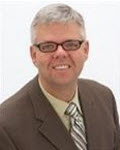Why Choose a Pediatric Dentist?

Pediatric dentistry was created to fill a void in traditional dental care. Your child's teeth and dental issues are different from yours, and therefore need special care. For instance, when was the last time your family dentist addressed your thumb- or pacifier- sucking habit, or explained that going to bed with a bottle can negatively affect your oral health? As a parent, you have to deal with teething and teaching another person how to properly care for his or her teeth, and pediatric dentists are equipped to deal with these issues. Both you and your child will appreciate the specialized care that a specialist can provide.
So, what sets a pediatric dentist apart from your traditional dentist? Pediatric dentists undergo additional training to learn about children's growth, development and psychology. They also take behavior management classes, where they learn to deal with nervous or hard-to-handle young patients. Here are just some of the things pediatric dentists can do to make this time easier (and healthier) for both you and your child:
- Preventive care. Small mouths have special needs, such as child-size toothbrushes and fluoride-free tooth paste. A pediatric dental specialist will not only show your child how to properly care for his or her teeth, but, even more importantly, teach you how to supervise and guide his or her preventive dental care.
- Monitoring growth.As children begin to grow primary teeth, pediatric dentists keep an eye on the bite and jaw alignment to predict, prevent and treat orthodontic problems.
- Teething. Only a parent can truly understand the struggles that accompany a teething child. They're in pain and grumpy while you're virtually helpless (and so probably just as grumpy!). A pediatric dentist can show you how to alleviate your child's discomfort properly clean the teeth once they erupt.
- Baby bottle tooth decay. If you send your child off to bed with a bottle, you aren't alone. It will often put an end to that incessant crying you've been struggling with most of the night. Unfortunately this habit can have terrible consequences. Sucking the bottle tip can misalign teeth. What's more, if the bottle contains any fluid other than water (particularly sugary fluids like juice), it can promote the growth of bacteria in the mouth and lead to tooth decay. A pediatric dentistry expert can minimize the effects of baby bottle tooth decay.
- Thumb- and pacifier-sucking. Sucking thumbs, pacifiers and baby bottle tips can cause teeth to either shift out of line or grow improperly. A pediatric dentist will advise you on how to overcome these bad habits, which are often difficult to break.
You can also expect a different sort of "bedside manner" from a pediatric dental specialist, who has been trained on soothing the worried minds of dental phobic children.

+Jim Du Molin is a leading Internet search expert helping individuals and families connect with the right dentist in their area. Visit his author page.
Oral Disease: Talking To Children About Tobacco

Over the past several decades, the number of adult smokers has substantially declined, however, the number of youths who smoke has remained unchanged. More disturbing is the fact that the use of snuff (also called chewing or spit) tobacco has tripled.
Tobacco use is the largest avoidable cause of death and disability in the United States. A tobacco-related illness or condition is the cause of 25% of all deaths in the United States. On average, each smoker who dies would have lived another 15 years if he or she were a non-smoker.
Smoking causes or contributes to the following diseases and conditions:
- Lung cancer
- Laryngeal cancer
- Esophageal cancer
- Oral and oropharyngeal cancer
- Cervical cancer
- Bladder cancer
- Pancreas cancer
- Kidney cancer
- Heart disease
- Emphysema
- Chronic bronchitis
- Stroke
- Slows wound healing
- Slows illness recovery
More than 9,000 individuals die each year from oral and oropharyngeal cancer. The risk of having oral and oropharyngeal cancer is much greater among tobacco users. Over 90% of people with oral and oropharyngeal cancer are tobacco users. The mouths of tobacco users have more red and white patches and nodules, sores, and ulcers that could be oral and oropharyngeal cancer. Tobacco users also have a higher incidence of gum disease, coated tongue, cavities, wearing of teeth, and gum recession.
Also consider that about 3,000 children begin to smoke each day. Approximately 90% of new smokers begin before age 20, and children and adolescents who smoke become addicted faster than adults do. Nicotine, a drug found in all forms of tobacco, is very addictive.
Pregnant women who smoke have a higher risk of having an unhealthy baby than those who do not smoke. New mothers who smoke put their babies at risk for sudden infant death syndrome (SIDS), poor lung development, asthma, and infections.
Tobacco use occurs in the form of cigarettes, cigars, or smokeless (spit) tobacco. Kids need to be educated about the harmful effects of tobacco. Bring up the subject of tobacco use. This can be done when you see or hear things about tobacco on TV, on advertisement billboards, t-shirts, hats, or in magazines. Explain that buying tobacco is a waste of money and that the tobacco companies target advertisements toward young people in order to hook another generation of tobacco users. Tell them tobacco kills about a half million people each year. More people die from tobacco-related illnesses than from car accidents, alcohol, AIDS, suicides, homicides, fires, and illegal drugs combined. Let kids know that tobacco use will stain teeth and dental fillings, cause their clothes and hair to smell, cause tooth decay, tooth loss, gum disease, bad breath, and will dull their sense of taste. Young people may be more receptive to the fact that their boyfriend or girlfriend may think they have bad breath or stained teeth than the number of deaths caused by tobacco use. Tobacco use does not improve athletic ability, increase popularity, or make one appear grown-up.
by Denise J. Fedele, DMD, MS

+Jim Du Molin is a leading Internet search expert helping individuals and families connect with the right dentist in their area. Visit his author page.




















